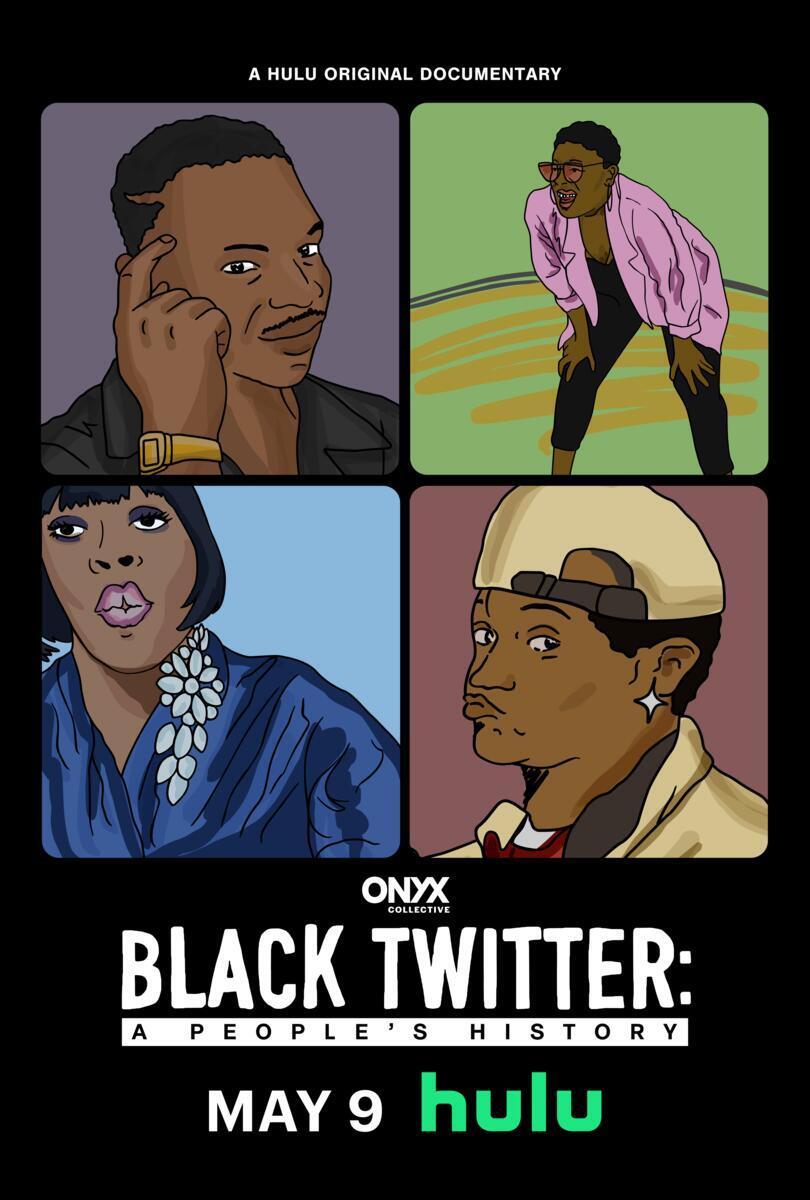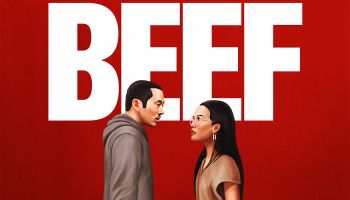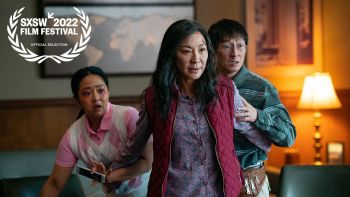We’re just days away from the arrival of the new Onyx Collective documentary Black Twitter: A People’s History on HULU.

Source: Amy Price / Getty
Based on Jason Parham’s WIRED cover story “A People’s History of Black Twitter,” this three-part docuseries charts the rise, movements, voices and memes that made Black Twitter an influential and dominant force in nearly every aspect of American political and cultural life.
Global Grind’s Sr. Content Director Janeé Bolden sat down with Black Twitter EP Prentice Penny about taking on this critically important story. Check their Q&A below:
GlobalGrind: How did you decide who to talk to for this project?
Prentice Penny: We really started from the article [Jason Parham’s WIRED cover story] because that’s what it’s all based on. Jason had done great work on the article, so it was like ‘Great what’s the foundation of who we need? Who could give us the most information?’ That’s sort of where it all started and then we sort of built it out from there. One of my biggest things was, we need to just have regular people be in the doc, because that’s what Black Twitter is made of, like ‘I was walking down the street and I saw this thing happen.’ And now that’s the thing that we’re talking about right? Those people are important. We have them throughout the doc too. There’s like 65 people in this doc, so it’s a ton of people.
Is there anyone that was on the wish list that you weren’t able to get?
Kerry Washington was on our list. She was just busy you know doing her show. Black Twitter supporting Scandal was such a very specific thing in the first episode that, obviously having her voice be a part of that would have been great. That would have been the one. We could have got Kerry Washington and that would have been awesome.
Can you tell us about the decision to break it into three parts?
I really started with the article and his article is three parts so for me it was like, ‘Ohh that’s already like a narrative structure in some way.’ Then for me, it was finding from a writing standpoint, ‘Well what’s the story right? Are we talking about an incident on Black Twitter?’ Black Twitter is also this really amorphous thing. It’s not like doing a doc on John Lewis where there’s the subject matter or a specific incident. So for me it became, really, a coming-of-age story. I know coming-of-age stories, like in Star Wars or Harry Potter where you start with the hero who is kind of innocent and naive and not really knowing what’s going on in the world, and then some sort of event happens that changes the trajectory of that. In Star Wars it’s like Obi Wan is killed now what’s going to happen? For us in our doc, it was like Black Twitter is having this fun and then Trayvon happens, now what? So you’re sort of watching Black Twitter go from not really being anything to being this force that’s moving in the world and to me that felt like a coming-of-age story.

Source: Courtesy / hulu
At one point you mention how anyone ‘could get the smoke’– can you talk about Black Twitter clapbacks and why they’re so important?
I love that because it’s like, I could get the smoke too. All of us can get the smoke. That’s the beauty of it. That’s why I don’t mind giving it back either, right? Because that’s the fun of it. It’s like the back of the bus, it’s the stoop, it’s the lunch room. Nobody’s above the jokes. Nobody. I love the democratization. I love that about Black Twitter. It’s like it doesn’t really matter, you can all get it.
This is your first documentary, how was it more challenging that doing a scripted project?
It’s tougher in that, in a scripted thing you could be like, ‘Oh no I wanted to go here.’ Like you can dictate where the story is going to go. You don’t get to dictate that in reality right? When you’re doing the doc, you’re like, ‘this happened.’ How do you do that, right? Where I did find it is easier in some ways was when it was like, ‘we don’t have that’ we could find a news piece about it to kind of help tell the bridge of that story, rather than having to creatively come up with it in your head the whole time. Especially a story about Black Twitter, where you’re not taking creative license. You’re like, ‘This thing happened right?’ and you’re taking people’s responses from Twitter – being like, ‘this was some of the response’ obviously not all the responses, but you know some of them. So in some ways it was easier and in some ways a lot harder.
Have you started thinking about or working on your next documentary?
I want to do something in music. I don’t know what that is yet, but I’ve been watching a lot of music docs. I was rewatching Beyoncé’s Homecoming on Netflix and I was rewatching a lot of Michael Jackson. I was rewatching the Spike Lee documentary about ‘Off The Wall.’ That’s such a great doc about that. So I don’t know what I want to do yet but I’m curious about playing with something in music but I don’t know what yet.
Check out a sneak peek clip about the Rihanna/Ciara Twitter beef from Black Twitter: A People’s History below:
Wow. Now that was an incredible moment in time.
Here’s a full listing of the production credits from em>Black Twitter: A People’s History .
CREDITS:
Prentice Penny (A Penny For Your Thoughts)
Chris Pollack (A Penny For Your Thoughts)
Alex Soler (A Penny For Your Thoughts)
Sarah Amos (WIRED Studios)
Helen Estabrook (WIRED Studios)
Agnes Chu (WIRED Studios)
Andrew Whitney (WIRED Studios)
Raeshem Nijhon (Culture House Media)
Carri Twigg (Culture House Media)
Nicole Galovski (Culture House Media)
Joie Jacoby (Culture House Media)
Shawna Carroll (Culture House Media)
SERIES CONTRIBUTORS
TJ Adeshola (former head of Global Content Partnerships, Twitter)
W. Kamau Bell (comedian; director, “We Need to Talk About Cosby”)
Dr. André Brock (communications professor; author, “Distributed Blackness: African American Cybercultures”)
Rembert Browne (journalist; former director of Product and Community, Twitter)
Dr. Meredith Clark (journalism professor; creator, “Archiving Black Twitter”)
Kid Fury (TV writer and host, “The Read”)
Roxane Gay (author; cultural critic, The New York Times)
Jemele Hill (author, journalist)
Sam Jay (comedian, writer)
Brad Jenkins (former associate director of the White House Office of Public Engagement, 2011-2015)
Brandon “Jinx” Jenkins (journalist, host, creative director)
Luvvie Ajayi Jones (New York Times bestselling author)
Shamika Klassen (researcher, scholar, “Black Twitter Is Gold”)
Van Lathan (cultural critic; host, “Higher Learning”)
Jamilah Lemieux (cultural critic, writer)
Wesley Lowery (journalist; author, “American Whitelash”)
Ira Madison III (TV writer; host, “Keep It!”)
Judnick Mayard (TV writer, producer)
Jason Parham (senior writer, WIRED)
April Reign (creative consultant; creator, #OscarsSoWhite)
God-is Rivera (former global director of Culture and Community, Twitter)
Amanda Seales (comedian, activist, host “Small Doses” podcast)
Denver Sean (senior editor, LoveBScott.com)
Baratunde Thurston (comedian; host, “How To Citizen with Baratunde”)
Ashley Weatherspoon (producer; writer, DearYoungQueen.com)
Raquel Willis (author, activist, media strategist)
J Wortham (journalist, The New York Times Magazine)
em>Black Twitter: A People’s History premieres on Hulu Thursday, May 9.
Will you be watching?
















